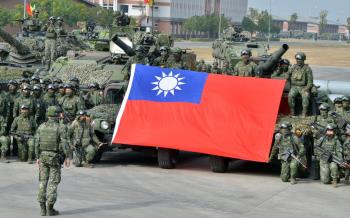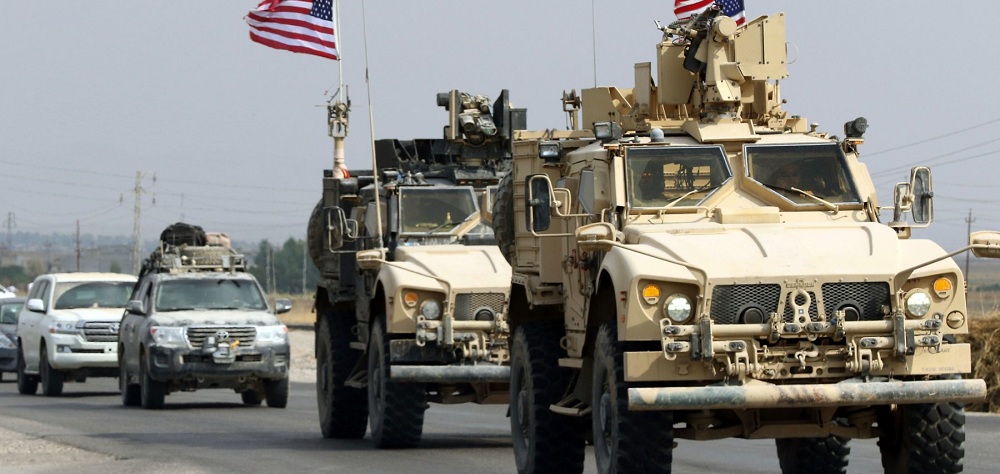Alwaght- The developments that followed popular uprisings in some Arab countries in 2011 created a new trend of equations and undermined central governments and consequently paved the way for emergence of terrorist groups amid security vacuum and home disputes. One of the countries hardest-hit by this turmoil is Iraq.
In early 2014, the ISIS terrorist group, backed by some Arab and Western countries especially Saudi Arabia as well as the Israeli regime, captured about one-third of the Iraqi territories in sweeping operations. Following the developments in Iraq, the so-called US-led international coalition stationed about 5,000 troops in various military bases in Iraq.
The defeat of ISIS and the end of the self-proclaimed caliphate of Abu Bakr al-Baghdadi created a new atmosphere for policy and governance in this country. In the new atmosphere, the political parties and government strongly wanted the foreign forces, mainly the US troops, to pull out of the country. But Washington dismissed the Iraqi exit demands and kept its forces there. This position drew a response from resistant factions in Iraq that over the past few months launched several military operations against the “American occupying forces.”
At the time being, despite White House's insistence to ignore the Iraqi public and parliamentary exit call, evidence shows that the Pentagon is in a tight spot after a sequence of attacks on its military in the Arab country. The US has now cut its military bases from 20 to only 4 bases, reports show.
The resurrection of the Iraqi nightmare to Americans
Over the past few years, especially during ISIS's presence in the country, the priority of armed struggle against American occupation was replaced by the need to fight the dangerous presence of the foreign-backed terrorist organization. The focus of the public and politicians was on the liberation of large tracts of land seized by ISIS fighters. But in the new conditions, particularly after the US drone attack on Iranian General Qassem Soleimani and Iraq’s Abu Mahdi al-Muhandis as the two towering figures of anti-terror combat in Iraq, the Iraqi public intensified its demand for the end of the largely troublemaking US presence in the country.
In fact, the rising tendency for US expulsion made attacks on the American military legitimate and for the good of the country’s independence and sovereignty and of priority to Iraqi groups. In other words, the segments of the Axis of Resistance now fight against the foreign occupation without any fear as they have full Iraqi public support. Although the US embassy, consulates, and military bases were safe havens for the Americans, now the American commanders admit that no spot in Iraq can provide them with immunity as all of the troop concentration places were attacked in the recent months by resistant fighters.
In other words, if in the past some political factions were doubtful about attacking the Americans, now the American forces are facing tough resistance from the Iraqis. The impressive point is that the Americans have reached this conclusion and took some measures in the past few months to cut the number of their military bases for more efficient protection. After all, they are now sure that no spot in Iraq is safe for them and they cannot freely act as they wish in the country like the past.
When patience is lost
In 2009 when Washington and Baghdad signed a security pact that stood as a prelude to the US exit from Iraq in 2011, Iraqi people and political parties sounded upbeat that the occupiers will move out in three years. The waiting period proved pleasant for the Iraqis who felt it a positive development. But the current conditions have caused a milieu in which it is impossible for the Iraqis to wait one year or even one month for the Americans to pull out.
During Iraqi Prime Minister Mustafa al-Kadhimi's visit to Washington on August 20, Iraqi and American sides agreed on a three-year timetable for the US withdrawal from Iraq. But not only the deal was not welcomed like that of 2009 but also political parties, spearheaded by resistant forces, strongly blasted the agreement and called it “unacceptable.”
The reality in Iraq is that no Iraqi faction wants to wait more for the implementation of the parliament bill of January 5 to expel the Americans. In the Iraqis' eyes, the bill neither takes preconditions nor a timetable. The sole thing that can calm the resistant groups is the exit of the Americans without more delay. What looks definite is that if the US defies the Iraqi demand, “gates of hell” will be opened to its troops as it sunk in the quagmire in the post-2003 occupation of Iraq, as the Iraqi sides warn.



























